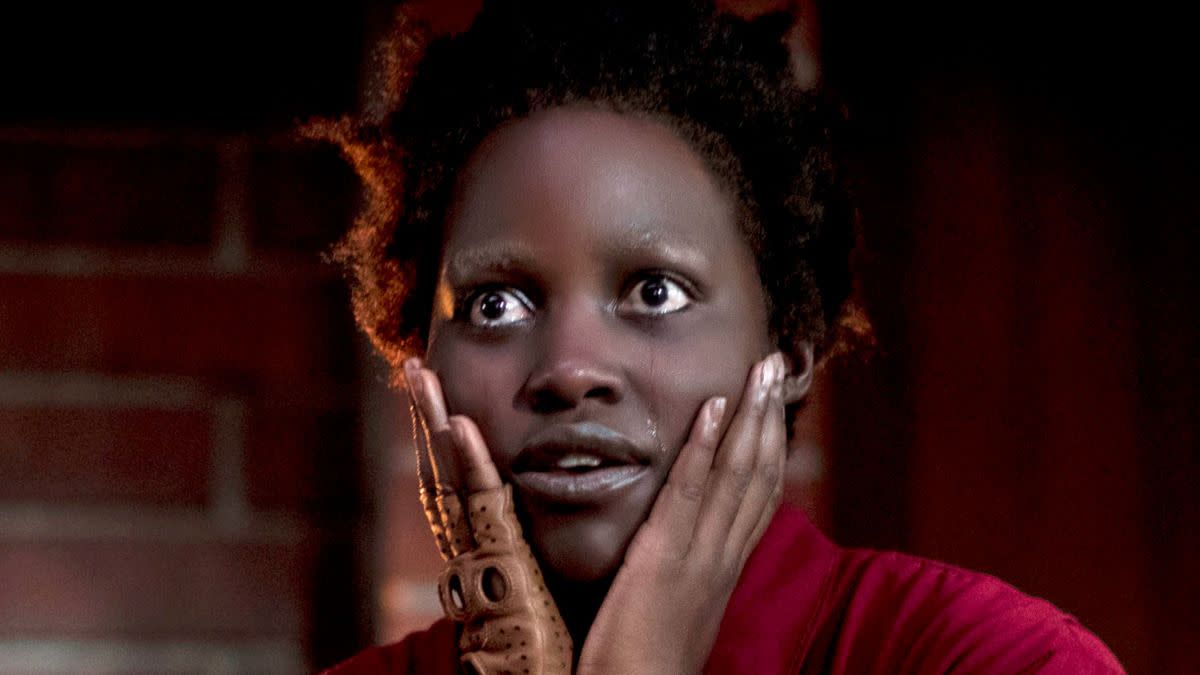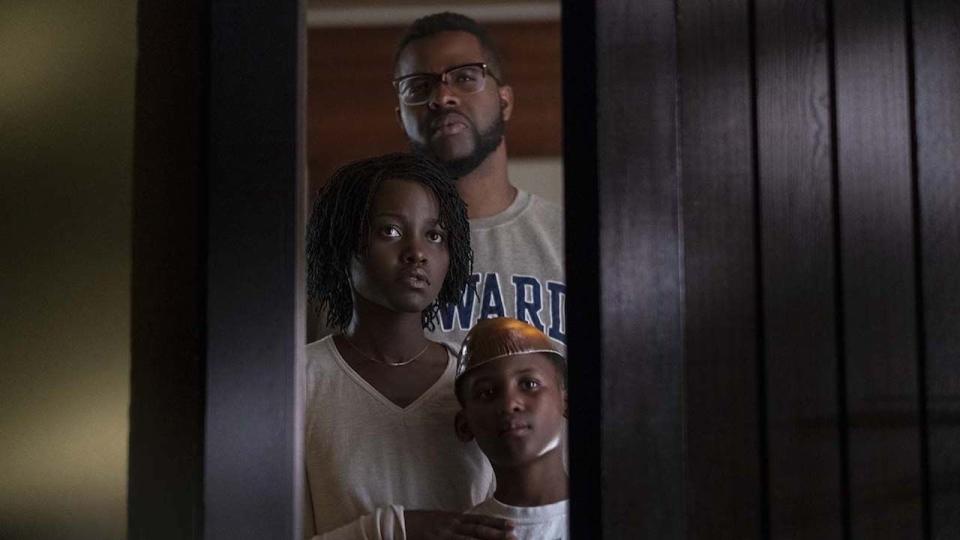Five Years Later, Jordan Peele’s ‘Us’ Is Still Scary—and Relevant—as Hell

- Oops!Something went wrong.Please try again later.
- Oops!Something went wrong.Please try again later.
"Hearst Magazines and Yahoo may earn commission or revenue on some items through these links."
Every great horror movie has The Moment. It’s a singular, unforgettable scene, one that’s so terrifying that it lives in your nightmares forever. Hereditary’s classroom possession. When Liv Tyler is asked if “Tamara’s home” in The Strangers. Just about every time Clarice Starling visits Hannibal Lecter in The Silence of the Lambs, but especially the five seconds it takes him to say, “I ate his liver with some fava beans and a nice Chianti.”
I’ve been thinking a lot about The Moment in Jordan Peele’s Us, which celebrates its fifth anniversary this month. The 2019 thriller follows the Wilson family, who travel to Santa Cruz for a relaxing beach vacation—but find a league of vengeance-seeking clones instead. The Moment comes about 20 minutes into the film, when the youngest of the bunch, Jason Wilson (Evan Alex), peers out of his window and spots a family in their driveway. And not just any family... his family. Jason’s parents, Adelaide (Lupita Nyong’o) and Gabe (Winston Duke), don’t believe it. Sure enough, there’s a gaggle of weirdos outside, and they look eerily familiar.
The first time I saw Us, I knew Peele created a masterpiece—and certainly his best film. But five years later, not everyone agrees. Browse any ranking of the best horror movies of all time and it’s clear that Peele’s debut effort, Get Out, reigns supreme. Even though Us was well-received by critics and fans alike, the fever pitch never quite reached the heights of its predecessor’s. It’s a shame (and I’m not just writing this as a fifth-birthday present for Us!), because the home-invasion thriller is the director’s best film. Hear me out.
Peele is destined to finish his career as an all-time horror auteur—and Get Out proved it. The project depicted racism in such a profound way that Peele won an Academy Award for Best Original Screenplay in 2018. In the film, Daniel Kaluuya stars as Chris, a young Black man whose white girlfriend, Rose, brings him home to meet her family. The film takes a grisly, slave-trade-inspired turn when the Armitages try to hypnotize Chris and sell his body to their wealthy friends. It’s horrifying, sure—but expected. Not the body harvesting! It’s the danger Chris faces as a Black man in a white environment. His fate was sealed from the moment he stepped inside their plantation-style house.

Get Out is meant to strike a chord in people who aren’t marginalized. The shock value lies in the understanding that racism is real, and ugly, and pervasive. Sure, Black people aren’t being harvested, but we are judged, fetishized, and profiled every day. You might even know a family like the Armitages—they probably voted for Obama twice, too! That’s the beauty of Get Out: It’s thought-provoking and uncomfortable. But Us is an entirely different beast. It’s sleep-with-the-lights-on, call-your-mom-for-comfort scary. And it’s entirely unpredictable—due to its dueling storylines.
If you need a refresher: On the surface, Us is a classic intruder story. A happy family on a weekend getaway! Monsters in the driveway want to kill them! The doppelgängers’ menacing stares and extra-sharp scissors are frightening, sure, but Peele deftly flips home-invasion tropes upside down. The clones—otherwise known as tethers—are forgotten Americans, born of a strange experiment gone wrong. They’ve been locked away for decades—and now, they want revenge.
For 121 minutes, the Wilsons defend themselves with household items and a dinky boat. Sometimes they’re successful; other times, not so much. In an Oscar-worthy twist (I’m still mad about Nyong’o’s Best Actress snub!), we learn that Adelaide isn’t who we think she is. As a child, she met her tether, Red, who led her underground. Adelaide chained her up and swapped places. So the sweet, nurturing Adelaide—who sings music in the car and laughs at her husband’s dad jokes—is an imposter. She’s the tethered one, and you just spent the entire movie rooting for the wrong woman. Was Red wrong for swapping places with Adelaide? Sure, but wouldn’t you do the same thing if you had the chance? It’s a brilliant chess move from Peele—one that has no right answer.
Let’s talk about Nyong’o, who delivered one of the greatest horror-movie performances of all time. She’s both lovable and wicked—motherly in the way Red cares for her family and animalistic in the way Adelaide hunts them down. Nyong’o somehow makes you sympathize with both versions of her character. Not to mention their fatal face-off, which... good luck removing that scene from your brain.
The supporting cast is pretty great, too. When fake Adelaide succumbs to her feral instincts, her son watches it all behind a closed door. He doesn’t speak, but his eyes say everything. Meanwhile, Gabe and his daughter, Zora (Shahadi Wright Joseph), deliver plenty of Peele-esque quips. Get Out finds its comedic relief in Rod, Chris’s best friend/TSA agent—but in Us, that comedic flair is mastered by a family who can’t stop bickering.
Just when you think you have Us figured out, there’s the added twist of Peele’s reference to Hands Across America—a now-defunct fundraiser that prompted Americans to form a human chain. The purpose was to raise money to combat homelessness, but mostly it just raised eyebrows. Afterward, everyone went back to their cushy homes and lives, while the homeless remained homeless. In Us, Peele delivers searing commentary on what happens to the people we leave behind.
In that lies the true terror of Us. Peele is, quite literally, speaking to all of us. There’s no institutional system to blame. No wicked family to point fingers at. We’re the ones who turn a blind eye to those who are suffering. Our tethered aren’t living underground—and honestly, that’s worse. Our tethered live among us. We see them every day and oftentimes do nothing to help. Really, what’s scarier than a movie that can take our greatest weakness, mask it behind a common fear—like a home invasion—and leave you feeling like a villain rather than a victim?
You Might Also Like

